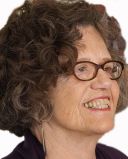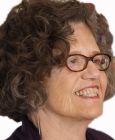Adoption
Adoption Can Create a Different Kind of Family
Creating ties between adoptive & birth families for a new extended family
Posted August 27, 2014
My mother in the early 1980s had difficulty accepting that her daughter at age 40, a single, professional woman, had adopted a five-day-old mixed race baby boy. She held onto the traditional view that a woman had either a career or a family, certainly not both if you were single. An interracial family was also beyond her understanding, although she and the rest of my family became very accepting of the charming, handsome child that my son became. Give these qualms, adoption seemed unproblematic, the morally preferable way for a single woman to become a parent. Both she and I believed that nurture was determinative. I believed that one could bring any baby from any class, race or location in the world into a family, and if treated equivalently, the child would grow up to be no different from a biological child. My mother was not surprised that in my private adoption I got information about both his birth parents, as I explained that someday my son might want to find them for medical reasons or to satisfy some curiosity. But this would not concern our family.
My mother in her mid-seventies exalted in being a grandparent to five biological grand children and to my adopted one. She could not have imagined that in my seventies I would have no grandchildren, but that my family would include a wide array of members of my son’s birth families in a southern state, relatives on both the black father’s and white mother’s side, including other mixed race half siblings of my son
Being a single parent was not easy, nor was crossing race and class barriers as part of being an interracial family, but adoption has challenged me the most and it’s where my experience has most changed my ideas. Only after I helped my son at age twenty-six find his birth families, all of whom were very accepting of him, did I discern why both his talents and problems made him so different from anyone else in my family. Only then did I understand how important a genetic and prenatal heritage is, not just for physical characteristics of a person, but also for interests and personality. But this was very late in his life and in mine.I now know that I could have been a better parent, and could better have helped my son navigate the pitfalls of adolescence, if I had known his birth heritage and if he could have known more about it too.
If the adoption had been opened sooner, while he was growing up, both he and I could have had a biological and an adopted family, different for each of us, but bringing a symmetry into our family life. My biological family was his adoptive one; his biological family could have been my adoptive one. Today, my son in his early 30s doesn’t fit comfortably into either family, not the one in which he grew up or the one with whom he shares a biological heritage.
As in any large extended family, both my son and I are closer to some of his relatives than to others. Although I am white, both of us have closer ties to the father’s black family, me to his wife (no biological relation to either of us) and my son to his half-sister, his father’s daughter. A few months ago, the stepmother called me to tell me that my son had been taken to a hospital in Oakland. He had sent a text to his sister in their southern state, but he, out of embarrassment, had not yet told me. This is how families should help each other.
I would have thought I would be closer to the white family, which is more like mine in social class and religion, but guilt undermines our closeness--the birth mother’s and my guilt that in distinct ways we enabled our son’s substance abuse.
My son’s birth families live 3000 miles way and I’ve met them only twice in the eight years we’ve been in contact. My connections to them are still superficial compared to those in my biological family who also live far away from me. But I’m not one of those adoptive parents whom I read about in blogs, or whom adult adoptees have told me about, adoptive parents who refuse to meet or have anything to do with their adopted son’s or daughter’s birth families.
When anyone asks me now whether they should adopt, I reply: “Yes, especially if you want to be a pioneer in forging a new kind of extended family, linking biological and adoptive relatives with your adopted child as the center of a network that comprises a complex kind of new family.” I believe that such extended families will become the new adoption ideal.
Note: A revised version of this essay has been published in You're Doing What? Older Women's Tales of Achievement and Adventure. Edited by Marjorie Penn Lasky. Berkeley, CA.: Regent Press, 2018


